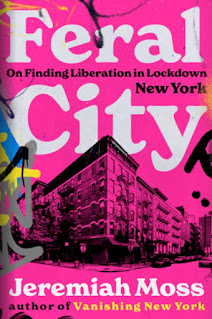I asked co-founder Matthew Silva a few questions about the project.

What's the story with the pavilion? Is it being torn down--and why?
The New York State Pavilion was built for the 1964 New York World's Fair and was meant to showcase "The best that New York had to offer." Basically, it was a showcase for New York industry. Some of the unique features were its three observation towers, the large elliptical tent of tomorrow, and its floor, which was giant Texaco road map made out of terrazzo. [See it here.]
It was meant to be retained as a tourist attraction after the fair but due to some unfortunate circumstances politically and economically, the building quickly became a low priority and essentially sat with little maintenance for decades.
At this point there is no order to tear it down, and I don't know of any governing body that WANTS to tear it down. The latest buzz came from results from a city-funded engineers report that was released in late November that provided cost estimate for the building's demolition, stabilization, and adaptive reuse. Basically, it will cost about $14 million to demolish it, and about $70 million to turn it into something new.
Why do you think it's worth saving?
Herbert Muschamp said "The essential feature of a landmark is not its design, but the place it holds in a city's memory." I think that sums it up. The building has become a symbol and a recognizable landmark of our city, especially Queens. Some argue that world's fair pavilions are only supposed to be temporary and that this should have been taken down years ago. Although that might be true, the fact is that it has endured, and has become a iconic building that people have come to recognize and admire. It's a part of the backdrop to so many people's lives, and to remove it would be to erase a part of their own history. Not to mention it was designed by world-class architect Philip Johnson, who was a major advocate for the arts and architecture. He was jointly responsible for saving one of New York's greatest treasures, Grand Central Terminal, and it's now our job to repay the favor.
How can people get involved?
People can get involved by staying informed and participating in the various events that our organization, People For the Pavilion (PFP), plan to hold in the new year. Visit our website, follow us on twitter, and like our Facebook page to keep up with the latest.
Matthew recently launched a Kickstarter campaign for his film, Modern Ruin, on the history and life of the Pavilion. Please visit the page, view the trailer, and give your support.



5 comments:
I could never understand why this was not preserved and the surrounding area developed as a concert venue etc it is a great location and historic
thank you so much for the heads-up on the Pavilion. it has always made me curious why it has been abandoned, now i know that it does not have to be.
why don't we have another world's fair in NY? my guess is that NY has lost its soul to gentrification. but what do i know?
thanks for your blogging, keep up the good work.
..
.ero
.
this place never did much for me. visited the last day of the worlds fair. i think its ugly. now it is an abandoned dump. if they fix it up & use it that would be ok. other wize i dont see its purpose.
I remember going there as a kid on a YMCA day camp outing when it was set up as a rollerskating rink. I went back there years later and by then it was abandoned and full of graffiti....
Being from Queens, I know how much this place is an integral part of the Queens "skyline"- Its mysterious purpose always eluded me, but I loved it nonetheless. The fairgrounds are a part of Queens history that can still be enjoyed today if we put some effort into restoring and repurposing this iconic structure.
Post a Comment